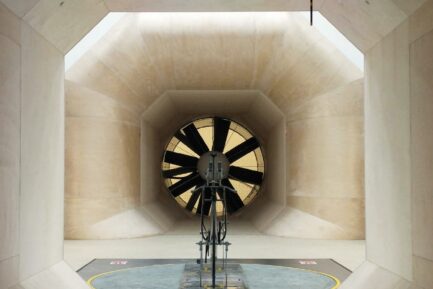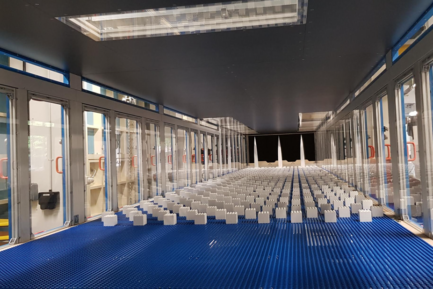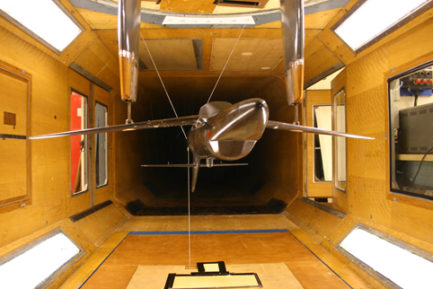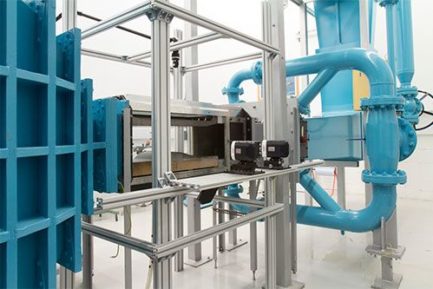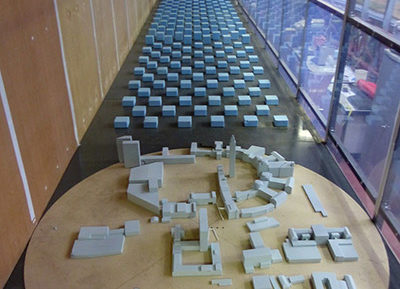Human-Flow Interactions Wind Tunnel
The Human-Flow Interactions (HFI) Tunnel is an open-circuit wind tunnel generating a 2m x 2m open jet with speeds up to 22m/s. Equipped with a six-component underfloor force balance, it measures aerodynamic drag on a manikin, cyclist, or wheelchair user, alongside real-time rider posture imaging. Operational since October… read more
Boundary Layer Wind Tunnel
The Boundary Layer Wind Tunnel in the Hele-Shaw Laboratory within the Faculty of Engineering is a designated National Wind Tunnel Facility, supporting a diverse range of research activities for both academic and industrial applications. It serves fields such as fundamental and applied aerodynamics, aeroacoustics, environmental flow, air pollution,… read more
8ft x 6ft Low Speed
The 8’x6’ Wind Tunnel at Cranfield University has a test section of 2.4 m x 1.8 m and a max speed of 45 m/s. It has a rolling road with boundary layer extraction, a 6-component overhead balance on 360deg rotating roof mounted turntable, an internal 6-component balance, a… read more
Transonic/Supersonic
The Transonic Wind Tunnel at City University has a test section size of 0.2 m x 0.25 m x 0.5 m and a M number range of 0.5 – 2. It boasts an internal 5-component sting balance (-5 – +20˚ alpha range, ±180˚ roll) and the latest in… read more
Atmospheric Boundary Layer (ABL)
Constructed in 2012, the Birmingham wind tunnel can generate approximately uniform flows or simulate the turbulence and velocity profiles of an atmospheric boundary layer (ABL) through the use of spires and roughness elements. With uniform flow, it has been used to investigate optimum rider positions for racing cyclists,… read more
